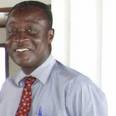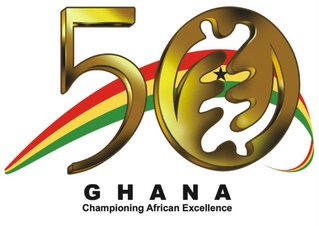 Dr. Nii Moi Thompson has said he is not too much convinced about the numbers provided by the Minister of Finance, Hon. Kwadwo Baah Wiredu in the 2007 Budget Statement regarding the projected Gross Domestic Product (GDP) growth rate of 6.2% by the end of the year.
Dr. Nii Moi Thompson has said he is not too much convinced about the numbers provided by the Minister of Finance, Hon. Kwadwo Baah Wiredu in the 2007 Budget Statement regarding the projected Gross Domestic Product (GDP) growth rate of 6.2% by the end of the year.Speaking to The Chronicle about his views on the budget, presented to Parliament yesterday, Dr. Thompson said the projected GDP growth rate of 6.2% would require more explanation before it will become a credible statistic.
Citing several reasons for doubting the projected growth rate of 6.2%, the Economist explained that there had been a several number of strike actions in the country during the period which would definitely lead to low productivity in the country.
Another reason he cited was the energy crisis that the country has experienced. He said these power cut lead to losses in almost all the sectors of the economy, especially the manufacturing sector.
“These unforeseen happenings, which were not there at the beginning of the year then become negatives,” he said.He said some other sector of the economy had to grow dramatically to offset this negative effect and he does not know.
“ We don’t know, somebody ought to tell us,” he queried.He promised to give a fair assessment once the information is provided. “Anything short of this would raise questions about the figures”.
He cited what happened last year about the growth rate. Earlier, he said the budget was strong in one aspect and weak in others.“In policy development, the private sector is the strongest both in terms of wealth and growth, especially with the abolition of the National Reconstruction levy and several other public-private-partnership”.
He mentioned private financing as one area.However, he said the budget fell short on human resource development and social services such as housing, which is a major issue for workers and small-scale medium enterprises especially rentals.
Dr. Thompson said not everybody could pay for four years of rent advance. This was not addressed.On good governance, he said the budget did not say anything about it, in terms of fighting corruption.
He said Ghanaians are saying high price for corruption but nothing was said in the budget to fight it. “Only the Procurement Law was mentioned,” he said.He hoped the Fair Wage Commission concept works out well.
In his opinion, a Financial Investment Analyst from the Strategic African Securities (SAS), Mr. Francis Nyoagbe, said Government is trying to put money into the pockets of Ghanaians and companies as well through the reduction of taxes through the abolition of the National Reconstruction Levy and other tax cuts.
Companies would then get enough profit for reinvestment and payment of dividends. “Whether the company would use the money the way government intended, is another matter,” he added.
He said the budget is to enhance credit in the economy, and by actually allowing the banks to publish banks’ annual rates and other fees charged. “It’s a good way of enhancing competition in the industry”.
He said customers would be able to shop for loans and be able to determine which bank is competitive and have better lending rates.Another positive thing, he stated was the intention of the government to register all property and to let people have titles to their properties.
This, the analyst said could be used as collateral for loans.Touching on investment into the energy sector, he said the investment of $470 million over the next two years was welcomed because Ghana needs a lot of energy in the country.
He however said the government should put in place a mechanism to provide incentives to the private sector to participate in the provision of energy, as government alone cannot provide all the energy needed.“Ghana is growing and a GDP of over six percent has been projected and a lot of energy is needed to propel the growth rate”.
The analyst noted that the budget is all about implementation.All the things the government has said it would do are all in its control and we would be happy if it would be implemented successfully.
Commenting on the tax incentives, the analyst said the exemptions given to the pharmaceutical industry must be replicated to the other sectors of the economy, like the services area, especially the insurance sector.
He stated that establishing a Fair Wage Commission is a laudable idea but stressed that the extent to which it would be responsive to the needs of workers is not known.
By the time the commission sets a fair wage, that wage would have been useless to the economy because of increases in prices.Mr. Nyoagbe said they have to consider utility prices and inflation in setting wages.
And if inflation and utility prices were not stable, the work of the commission would be useless, as they would have to adjust wages any time inflation goes up.
Source:http://www.ghanaian-chronicle.com/





